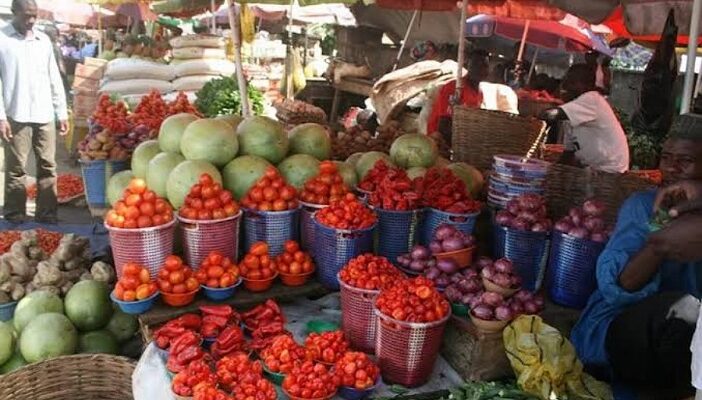It is no longer news that the fall on the naira has affected security, transportation and food, with the dollar rate moving from #700 to $1 in may 2023 to #1,500 to $1 in February 2024.
A visit to the market in recent times reveals that the cost of food and other household items is still on the high.
In recent years, food prices have been on the rise across Nigeria. It had worsened with the end of the fuel subsidy payment in June 2023 and heightened insecurity had meant that Nigeria was becoming food insecure.
The increase of prices affects the cost of living as people have to pay more for those goods and services, even though no extra item has been added to the basket.
There have also been significant increase in the prices of cooking gas, liquid fuel , passengers transport by road, by air, and so on.
Both salary earners and self employed citizens are complaining that their earnings rarely meet up with family demands including feeding, clothing, shelter, health and education. life has become increasingly difficult for many Nigerians , especially the low income earners, unemployed and vulnerable people.
The most commonly used word to describe what has been happening is “inflation”. Inflation is a term used in the field of economics to describe a general and progression increase in prices.
The cost of living is rising relentlessly . For many, bread and milk have become a luxury, and three meals a day is very hard. Rice is now usually eaten only on festive occasions because of it’s high cost. Those who suffer the most are students, unskilled labourers and poorer people, who are in no position to demand the higher income needed to keep up with the rising prices.
Many Nigerian household are going through hardship to acquire the crucially needed necessities of food, clothing, shelter, health and education.
People find it very difficult to transport to their various places of activities because of the hike in fuel price and transportation. Food items are now outrageously expensive because of transporting them from one place to another. Many people especially students now see trekking as a new hobby because of the increase in transportation.
Throwing light on the cost of living, Favour who is a student of Prince Abubakar Audu University Anyigba, Kogi state, said “I don’t understand the country anymore, it seems like we students suffer the most, the country is so hard and even at that in school, it has been buy this, buy that, print this, print that and we are even struggling to eat, it’s really frustrating.”
A tailor, Oyinkro Aleibiri from Kogi state, also lamented that things were getting worse.
“Everything is getting worse, anything you get cheaper today, if you go to the market tomorrow, it would have increased. Even the price of fuel is compounding our problem, even electricity.”
A petty trader, Ojoma who sells cooked food in Anyigba, Kogi state, said “I am just running the business. Anything I see, I manage, what we voted for is what we are receiving.”
Ojima from Kogi state who is also a food seller and runs a provision store added “Debtors have increased and to even collect debts has resulted to quarrels. Beggars have increased, some people will come, ask for food, take it, and before you collect your money, they will disappear, what will you do?”
The compounding factors of inflation, unemployment and currency devaluation have all contributed to this dire and alarming high cost of living.
Other possible contributory factors to the problem of inflation in Nigeria include worsening insecurity in farming communities; increase in the cost of production, the price of fuel , the national debt ,high taxes , economic policies, and reduction in productivity.
Nigeria has faced economic challenges, including a surge in the dollar exchange rate, leading to a significant increase in the cost of living for its citizens. Navigating through this tough times requires resilience, strategic planning, and informed decision making.
In this page we will explore practical tips and strategies to help you survive the high cost of living in Nigeria today.
Financial planning, you can start by creating a budget that outlines your monthly income and expenses . Identify areas where you can cut cost without compromising essential needs. Prioritize spending on necessities like food , rent , and utilities, and minimize discretionary spending on non essential items.
Invest in personal development, Investing in your skills and education can enhance your marketability and potentially lead to better job opportunities or higher income.
Emergency funds, build and maintain an emergency fund for unexpected expenses. having a financial cushion can provide peace of mind and help you navigate through unforseen circumstances without accumulating debts.
Surviving the high cost of living in Nigeria a combination of financial prudence, adaptability and community support.
By implementing these practical tips and maintaining a positive mindset, you can navigate through challenging economic times and work towards a more secure and stable financial future.
– Amade Joy
Prince Abubakar Audu University, Anyigba.

